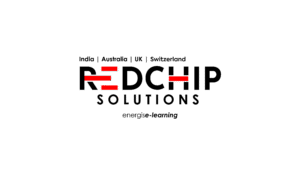LMS For Pharma Companies: Staying Audit-Ready

Key LMS Features For Pharma Compliance
Pharmaceutical companies operate in one of the most regulated industries in the world. Training employees, documenting compliance, and preparing for audits are continuous processes that require precision. Learning Management Systems (LMSs) have become a key part of how pharma companies organize and manage training. They help maintain accurate records, standardize learning, and make compliance data accessible whenever regulators need it.
Why LMS Pharma Solutions Are Important
An LMS is more than just a training platform. It serves as a centralized hub where learning content, employee records, and compliance data are stored in one secure location. For pharmaceutical companies, this means easier access to proof of training and a more reliable way to ensure that employees are meeting regulatory requirements.
Sponsored content – article continues below
Trending Learning Management Systems (LMS)
Without an LMS, companies often depend on manual tracking, spreadsheets, or paper records. These methods can lead to missing information, delays in training updates, and difficulty demonstrating compliance during an audit.
Overview Of What This Article Covers
This article explores why compliance training matters for the pharmaceutical industry, highlights the most critical LMS features for staying audit-ready, and explains best practices for managing training data. It also discusses the advantages of real-time tracking and offers insights on how technology is shaping the future of compliance training.
Key LMS Features That Support Audit Readiness
Automated Training Records
An LMS automatically records completion dates, learner details, and assessment results. These digital records create a clear audit trail and remove the need for manual data collection.
Version Control For SOPs
Standard operating procedures (SOPs) change frequently in pharmaceutical operations. Version control ensures employees only have access to the most recent documents and training modules, which prevents compliance errors.
Role-Based Learning Paths
Employees in manufacturing, R&D, or quality control all have different training needs. LMS platforms allow administrators to create separate learning paths for each group, making it easier to deliver the right training to the right people.
Real-Time Dashboards And Reporting
Real-time reporting enables compliance teams to track training progress and identify gaps before an audit. Dashboards display completion rates and upcoming deadlines in a single view.
Electronic Signatures
Electronic signatures confirm that employees have completed and acknowledged training. This provides verifiable proof of participation when requested by inspectors.
Audit Trail Capabilities
An LMS captures every system activity, including updates, completions, and changes to learning material. This historical data can be reviewed during regulatory inspections.
LMS Best Practices For Pharma Companies
- Regularly update content
Training materials must reflect current regulations. Outdated content can cause compliance failures. - Schedule refresher training
Continuous learning ensures employees remain familiar with SOPs and compliance standards. - Monitor compliance gaps
Use LMS notifications and reports to address overdue training before an audit occurs. - Validate understanding
Quizzes and assessments should be included to verify that employees not only complete training but also understand it. - Store records consistently
Keep completion data organized and easy to retrieve to avoid delays during audits.
Advantages Of Using An LMS In Pharma Companies
The most significant advantage of using an LMS is efficiency. Centralized data storage saves time when preparing for inspections. Real-time monitoring allows companies to remain audit-ready throughout the year rather than rushing to gather records at the last minute.
Another benefit is accuracy. Digital records reduce human error, provide a consistent format for reporting, and ensure that all employees are accounted for in training compliance.
How LMS Audit Features Reduce Risks
Audit readiness depends on accurate and complete documentation. LMSs minimize the risk of missing records by capturing every learning event automatically. By using scheduled reminders and dashboards, compliance teams can maintain training completion rates at the required level.
The Future Of LMS In Pharma
LMS technology is evolving to include AI-based recommendations and predictive analytics. These tools can identify employees at risk of falling behind on compliance requirements and suggest corrective actions early. The future will likely bring even greater automation, making compliance tracking more proactive and less reactive.
Conclusion
Pharma companies face ongoing pressure to demonstrate compliance during inspections and audits. An LMS helps by providing automated record-keeping, version-controlled content, and real-time reporting tools. When used correctly, it reduces the risk of training gaps, keeps compliance data organized, and supports smooth audit outcomes.
A well-implemented LMS also builds a culture of accountability. Employees know that their training status is monitored and that refresher courses will be assigned when standards change. This encourages proactive participation rather than last-minute rushes before an audit.
In addition, a good LMS allows compliance teams to focus on improving training effectiveness rather than spending time on administrative tasks. With detailed reports, organizations can analyze trends, identify recurring training gaps, and adjust learning strategies accordingly.
Finally, integrating LMS audit features with other quality management systems ensures that pharma companies are always ready for regulatory scrutiny. This approach transforms compliance from a stressful, reactive task into a continuous, well-managed process that supports long-term operational excellence.









